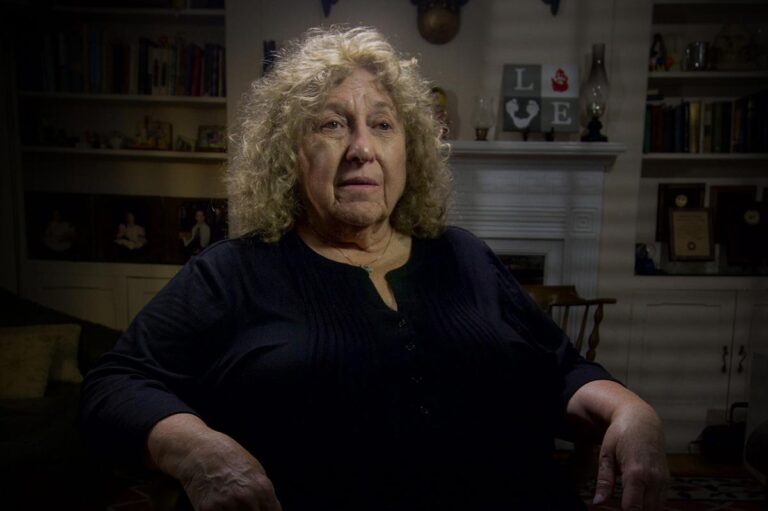
There are dozens of documentaries that discuss the Holocaust. However, few of them describe themselves as “not documentaries.”
“Stories for My Children’s Children: Lessons from the Holocaust,” which premiered at the Big Apple Film Festival earlier this month, originated from a grandmother’s desire to share her parents’ story with her grandchildren and future generations.
Sarah Rolnick, the daughter of two Holocaust survivors, wanted to ensure that her parents’ story was not lost to time.
Rolnick’s father, Roman Putter, was imprisoned in multiple concentration camps during the Holocaust, while her mother, Genowefa Piora, was hidden by the Osika family in Poland.
Unpacked spoke to Rolnick’s son and the executive producer on the project, Daniel Rolnick, and director Christopher Wells about the film and what they hope viewers gain by watching it.
“Stories for My Children’s Children” started as a family project
Rolnick decided to create home videos sharing her family’s experiences during the Holocaust because no one from her parents’ generation is still alive to tell their story themselves.
“She wanted to make sure that she could pass this story down because oral histories disappear. And she wanted to make sure there was something tangible [to tell] the story to her grandchildren, and her great-grandchildren,” Daniel Rolnick told Unpacked.
When Wells heard about Sarah’s project through a mutual friend, he felt that it could be so much more. Wells believed that the Rolnick family’s story would inspire people of all backgrounds because of its universal messages of strength and humanity.
Wells told Unpacked that he immediately recognized the story’s potential to resonate with a broad audience.
“The Osikas hid [Daniel’s] grandmother in a barn for two and a half years. This family risked their lives to hide Daniel’s, so it’s very inspiring. Hopefully this message of peace and treating people with kindness is going to resonate,” he told Unpacked.
Wells and Rolnick wanted the documentary to tell a story
“Stories for My Children’s Children” was filmed over four days at Sarah Rolnick’s Long Island home during the pandemic.
Sarah, who had never appeared in a film before, was initially nervous about the large-scale project and the number of crew members watching. To make Sarah more comfortable, Wells put her son in her eyeline so she could speak to him.
The documentary intentionally avoids the use of disturbing graphics. Instead, Sarah mostly speaks directly to the camera with sparse images and documents appearing on screen throughout. The film’s stripped-back style was a deliberate decision by Wells to put the Rolnick family story front and center.
“I always believe that you should lead with your story first,” Wells said, adding that oral storytelling is a large facet of Jewish culture. “We wanted it to be like a grandmother talking to her grandchildren and telling the story.”
“There’s no reason to put bells and whistles on it. The story is so incredible and heartbreaking and inspiring that you don’t need much more,” he added.
The filmmakers aim to tell the story of the Holocaust through a personal lens
Daniel Rolnick and Wells want people to understand the experience of the Holocaust through the lens of one family’s story.
Daniel recognized that it’s difficult to grasp the enormity of the Holocaust when presented with the sheer fact that 6 million people died. He hopes this approach will better enable viewers to understand and connect with the tragedy.
“A Holocaust documentary in my mind is a history lesson. And I didn’t think this was a history lesson. It’s really following the story of two people in their struggles. It’s about helping people connect with the material and understanding how important it is to take lessons from this,” he said.
One message Daniel hopes people take away from the film is that individual choices matter. His grandmother survived because of the Osika family’s courageous actions, highlighting the profound impact one family’s decision can make in times of crisis.
“I’m so proud of the film we made. And I’m so glad that people are connecting with it, which makes me think that we achieved what my mother was looking for,” he said.
“Stories for My Children’s Children” is now playing at various film festivals.
